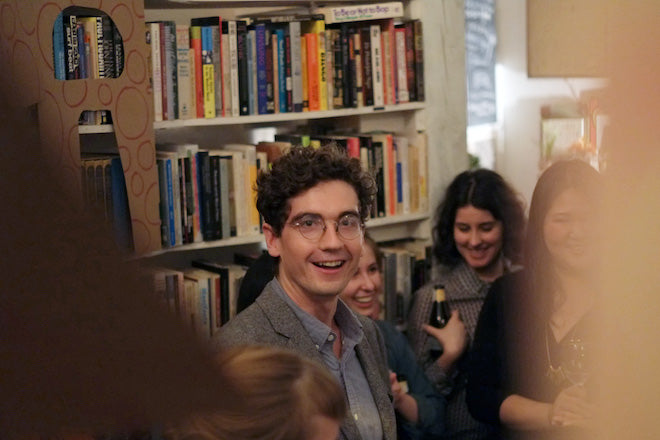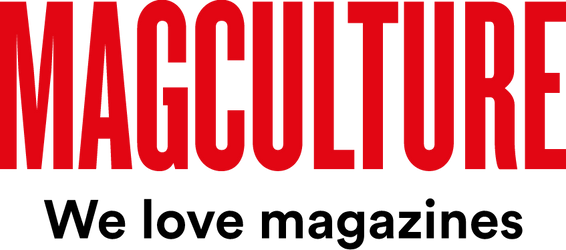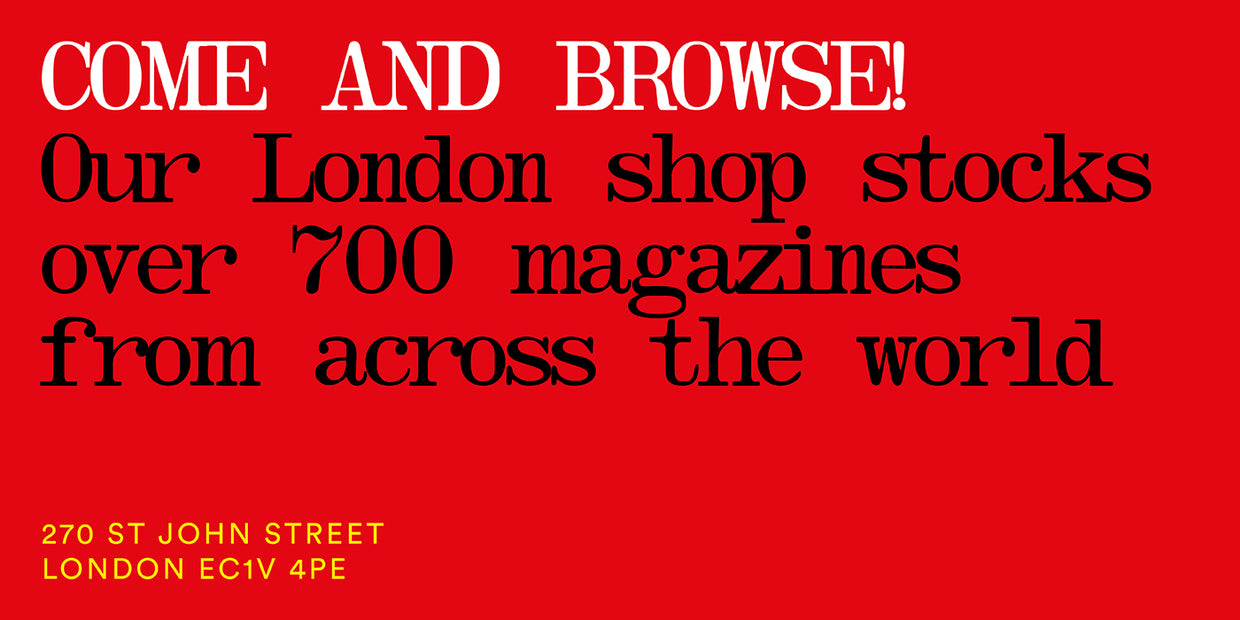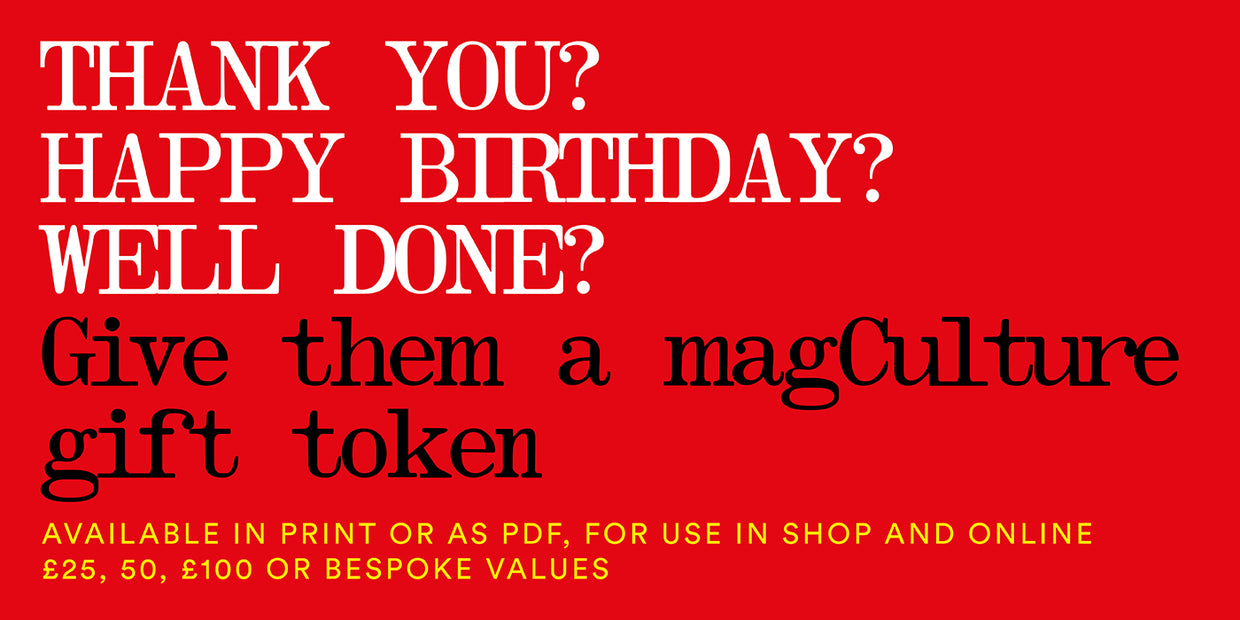
Ben Yarling, editor, American Chordata
We’re starting the working week off with Ben Yarling, the New York-based editor and founder of literary journal American Chordata. The title has been celebrated in magazine circles for its bold editorial approach, which aims to make the fiction and non-fiction included inside feel accessible. We catch up with Ben right after the release of issue four.

Tell us about your journey to work.
My journey to magazine work happens at the end of the day. So far today I woke up at like 6:30, took a shower, neglected to shave, got dressed, walked, picked up a coffee and a plain croissant at my usual spot by the Jefferson L stop in Brooklyn, took the L train to Union square while perusing emails and reading my book a little, transferred to the 4/5 and rode that to Grand Central-42nd St. At 5:15ish this afternoon when I finish my day-office work as a book editor I'll do the same journey in reverse minus the coffee and croissant. I'll probably grab a cemita al pastor for dinner at this little shop near my apartment, listen to some Spanish language tapes after I eat it. I’ve been obsessively trying to learn Spanish lately.
Then I’ll open my laptop and dive into night-office work on AC.

Describe the state of your desk.
My desk is currently a little table in the living room. It is in a wooden state, maybe a couple of crumbs on it from when I ate something last night but otherwise just my laptop. Which is where the real work happens.
Not pictured: endless piles of paper elsewhere.

Which magazine do you first remember?
Hmm. Maybe Highlights? The first magazine for which I bought a subscription—other than like Boy’s Life back in the day—was, I think, Oxford American. I’d recently moved from my home town in Georgia to Boston to get a degree writing, literature, and publishing, and I got into this posturing, bleary-eyed pining for the south. I started faking a southern accent I never had when I lived there. Stuff like that I thought, at the time, might make me seem interesting to all the interesting new people I was meeting. But one good decision I made in that era of silliness was subscribing to OA. I still subscribe. I think also subscribed to Cabinet magazine around the same time, though I applied for an internship there one summer shortly after, didn't get it, and never forgave them for the chip in my then-19-year-old vanity. That magazine is so good. Plus, I learn a lot of new esoteric words every time I pick up a copy, and various ephemera for trying to seem interesting (a running life theme, evidently) in small talk with relative strangers.

Which magazine matters to you the most today?
I have to be very careful not to let myself look to other magazines for guidance with American Chordata. Total creative/editorial paralysis if I do. But for personal reading n+1 is a go-to of mine. I read the London Review of Books, though not nearly as often as it appears in my mailbox. There are many others I read regularly and intensely admire, but if I name one I’m going to have to name them all. So I’ll leave it at that.
Which fiction writer matters to you the most today?
The fiction writer I’m currently reading is typically the writer who matters most to me at a given moment. Right now that’s Colson Whitehead. ‘The Underground Railroad’. We’re also in the final couple of weeks of our reading period with submissions for the fifth issue, and a couple of the stories I’ve read in that process are feeling like they matter to me very much indeed. But I can’t tell you the names of the authors yet. It would ruin the surprise. Also it may turn out that none of the other editors agree with me about these stories and we don’t end up publishing them. That’s been known to happen.
There are so many established and much-loved literary magazines on the shelves. What gap in the genre does American Chordata aim to fulfil?
If I put my bragging goggles on, I think we bring a zine-world courage and ethos to a luxury-level product, privilege brave, earnest voices and diversity of experience, prioritize respect and admiration for the work we publish, and try to create gut resonances between outstanding works of art and outstanding works of writing through very careful pairing. Plus we try to design it fancy.
You edited the first four issues on your own; the forthcoming fifth issue marks the arrival of a co-editor, Alison Lewis. What’s changed now that there’s not just one but two of you?
It’s always been a collaborative effort. There are 10 of us on the editorial side, and we make decisions together and always have. I think conflicts of opinion can be very, very useful in ensuring that we publish the best work we can. Sometimes that means we fight it out for a couple of weeks until we get on the same page. Ali has had my back with the day-to-day management stuff for the magazine for a long time now, as well as a lot of the developmental editing work we sometimes do with the pieces we publish. I’m also not a great or frequent communicator, and she is.
So in part it’s just formalizing things she’s already been doing for the past three issues. We wouldn’t be where we are now without her, I trust, respect, and admire her and her judgement completely. It’s an overdue change. I’ve also reached a point, and the magazine has reached a point, where it’s unfeasible for me to keep trying to do certain things alone. I have to protect my health and well-being a little better than I can manage when I’m working 15 hours a day almost every day, as I did for the first two years. All to say that I’m really excited and grateful to have Ali to work with on that. It also seems healthy for me to not be making unilateral decisions about the content when we get down to final selections. There’s enough of that going on in the world already.
Every issue of American Chordata is uploaded on your website as a free PDF. Why?
In the beginning, it was in part because we didn't have enough money to print more than 200 copies and were very ambitious about how far we wanted it to reach. The PDF format offered us a way to approximate the artifact-value of a print magazine. And releasing it for free meant more readers, all over the world. I think we would have died pretty promptly if we hadn’t made that choice. So far we’ve also found that it incentivizes people who are able to buy the magazine in print to order it. Our readers ostensibly value print the same way we do. But this way, you can read it even if you don’t have money to spend on things like independent literary and arts mags at a given moment. That’s the most important thing to us, ensuring the work of our contributors gets read. It’s the whole point.
We need enough bread to stay alive, but offering the PDF for free doesn’t seem to get in the way of that. And it opens a lot of doors for us.
Are you ever concerned that pairing images so regularly alongside text will distract the reader or influence the way that they interact with the words?
Ha! Well, Madeleine, I will say that your comment about that in the magCulture review of our third issue still rings in my ears from time to time. The answer is yes, I am often concerned about that, or at least I feel anxious about it sometimes when I’m trying to go to sleep. But not so much that we’d change it. The heavy use of art is part of who we are as a magazine, and we’re careful to avoid using art that is an “illustration” in the sense of a literal depiction of the words that might influence the reading experience or change the way the words are interpreted.
We also recognize that the emotional power of an image is immediate, you can kind of be subjected to it rather than the reverse, while the writing requires conscious effort on the reader’s part to unlock that level of resonance. Both are mediums are capable of surprise, though, and I think that really cool things can happen when works from each medium are paired with the right level of deliberation, sensitivity, and respect for both sides of the equation. We think about that deeply and extensively, and are careful not to place an image somewhere it’s going to be destructive to an immersive reading experience.

Pick a spread from the new issue and tell us what it says about your magazine.
Here’s one that I think does what I just talked about. There’s a domestic, nostalgic, tenderly-funny-when-you-look-
What are you finding most frustrating about your work this week?
I recently learned that our thoughtless, psychotic president and his administration are reportedly planning to defund and eliminate the National Endowment for the Arts and the National Endowment for the Humanities in April, so that’s a work-related frustration in that we just recently acquired federal nonprofit status and will no longer have that potential channel of funding, as well as a personal and ethical one. If we can’t somehow keep that death sentence for the NEA/NEH from happening, it’ll also cut the legs out from under a lot of people, communities, and organizations much more important than we are. One of many such frustrations these days. But yeah, that’s one that’s on my mind work-wise.
What’s going to be the highlight of this week for you?
TBD. I’ve set aside several hours to read submissions on Saturday, so probably that?
What will you be doing after this chat?
I’ll probably go down the street and get another coffee before I head into the office.



